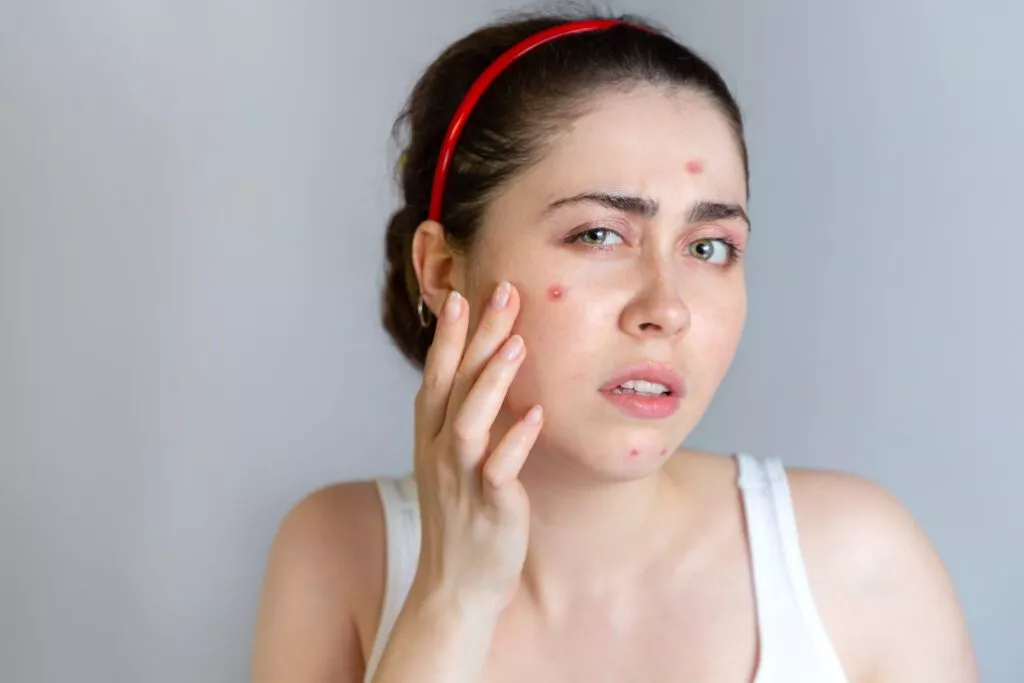Our skin, which happens to be the largest organ in our body, is made up of tons of tiny, living microorganisms – just like our gut. These microbes play a crucial role in protecting us against harmful bacteria, maintaining a healthy balance of bacteria in our bodies, supporting our immune systems, and keeping us healthy overall. In fact, the microbes in our gut and on our skin are so similar that they’re often referred to as the “microbiome.”

There are even more skin conditions that are linked to the gut. Rosacea, for example, is a skin disorder that causes uneven facial irritation that looks like a blush. It’s often connected to bacterial overgrowth in both the gut and skin. And young adults with acne often have clogged hair follicles caused by oil or dead skin – and this can be linked to an unbalanced, diseased gut.
So what can we do to improve our gut health and support our skin?

In addition to diet, other lifestyle factors can also impact the gut-skin axis. For example, getting enough sleep and managing stress can help reduce inflammation and support gut health. Taking probiotics or prebiotics, which are supplements that help promote healthy gut bacteria, can also be helpful.
Finally, when it comes to skincare, it’s important to use products that are gentle and non-irritating. Harsh soaps or scrubs can disrupt the skin microbiome and cause irritation. And if you do have a skin condition like psoriasis or eczema, it’s important to work with a dermatologist to develop a treatment plan that takes both the skin and gut microbiomes into account.
In conclusion, the gut-skin axis is a fascinating area of research that highlights the importance of a healthy microbiome for overall health.


